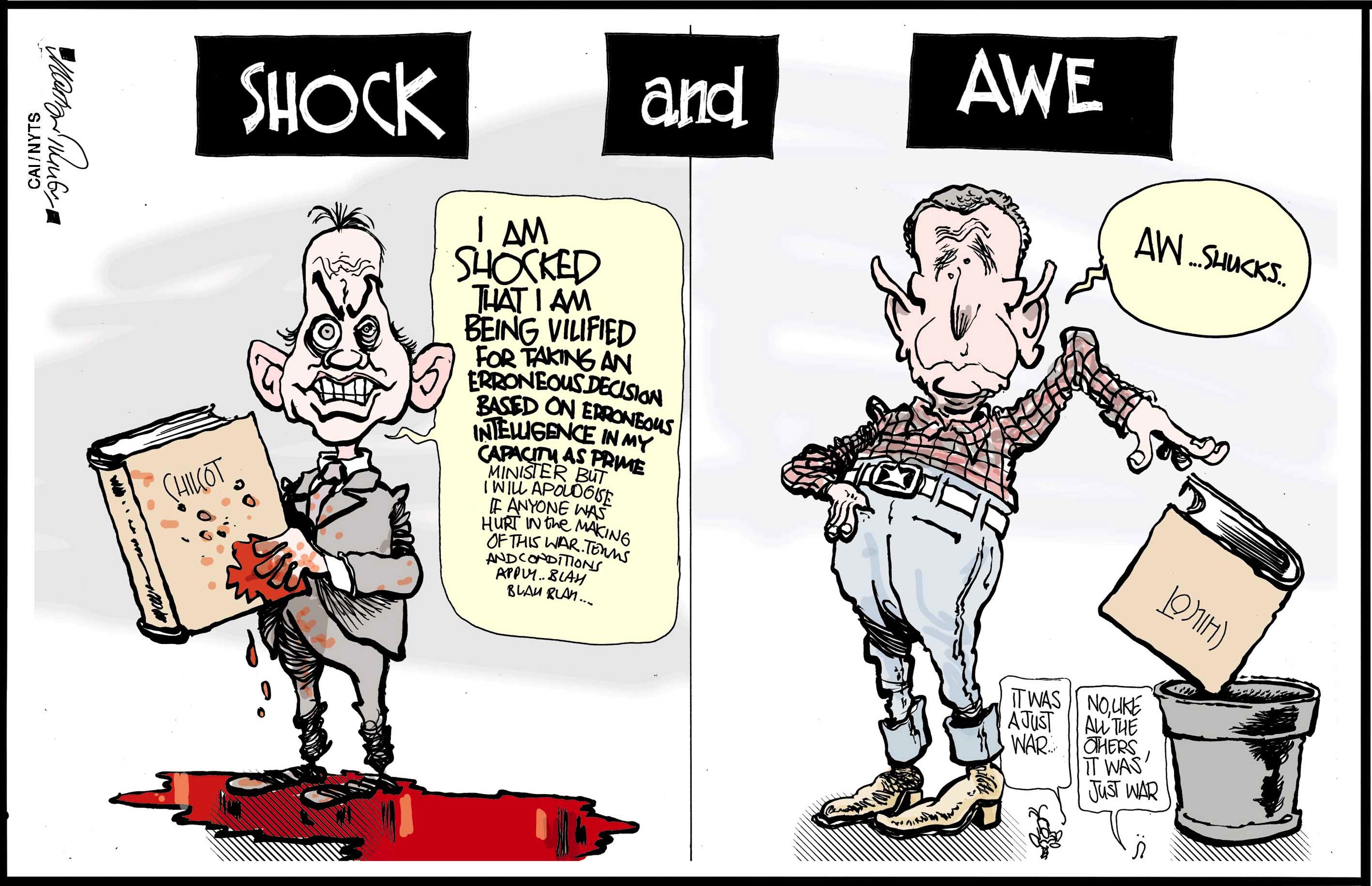"Suppose that ... the Iraqis feel ambivalent about being invaded and real Iraqis, not (just) Saddam's special guard, decide to offer resistance," wrote British Prime Minister Tony Blair to U.S. President George W. Bush in December 2001, two years before the U.S. and the U.K. invaded Iraq. At least Blair had some doubts, but neither man could really imagine that the Iraqis would see them as conquerors, not liberators.
Another 13 years have now passed, and at last we have the Chilcot report, an impartial official investigation into why Britain joined the United States in that invasion. (There is no equivalent American document.) It's a 12-volume study that illustrates just how ill-informed and reckless the planners of that illegal war were, but it doesn't tell us much we didn't already know.
There are some juicy documents about the prewar connivance between Bush and Blair, like Blair's promise in 2001 that "we are with you, whatever." But there is comparatively little on the scale of the disaster that the invasion inflicted on innocent Iraqis: 13 years of war, up to 600,000 Iraqis killed and a country effectively destroyed. So this is a good time to recall the fate of the city of Fallujah.



















With your current subscription plan you can comment on stories. However, before writing your first comment, please create a display name in the Profile section of your subscriber account page.